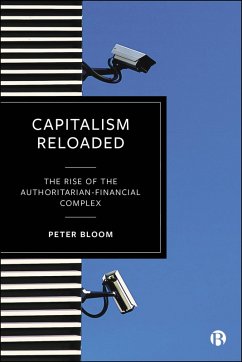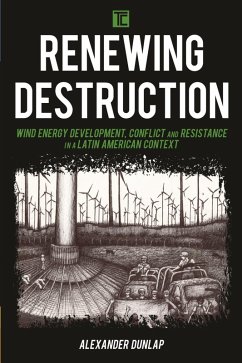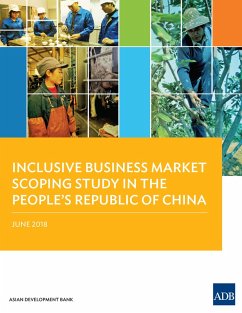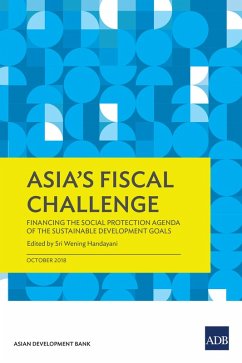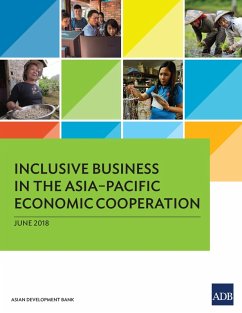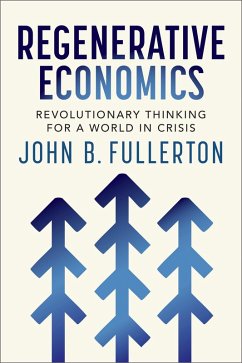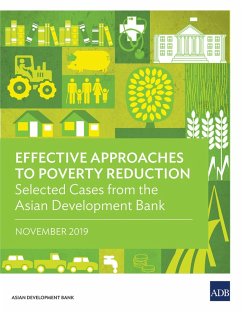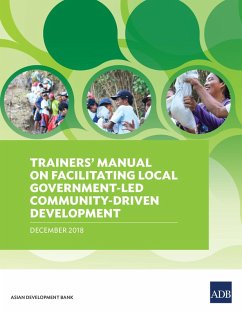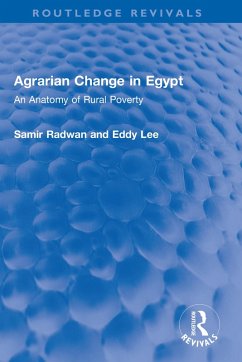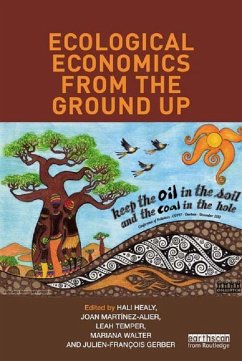
Land, Capital and Extractive Frontiers (eBook, ePUB)
Social Conflict and Ecological Crisis in the Senegal River Delta
Versandkostenfrei!
Sofort per Download lieferbar
29,95 €
inkl. MwSt.
Weitere Ausgaben:

PAYBACK Punkte
15 °P sammeln!
This book examines 'land-grabbing' - its colonial roots and the fraught relationship between capital and nature amidst the current global socio-ecological crisis. Through ethnographic and archival research, Maura Benegiamo investigates an Italian company's acquisition of 20,000 hectares in Senegal's River Delta for agrofuel production and delves into the struggles of pastoral communities affected by the project. Through this landmark case, the book shows how European energy and global food security policies are reshaping rural spaces, expanding agrarian extractivism in sub-Saharan Africa. By s...
This book examines 'land-grabbing' - its colonial roots and the fraught relationship between capital and nature amidst the current global socio-ecological crisis.
Through ethnographic and archival research, Maura Benegiamo investigates an Italian company's acquisition of 20,000 hectares in Senegal's River Delta for agrofuel production and delves into the struggles of pastoral communities affected by the project. Through this landmark case, the book shows how European energy and global food security policies are reshaping rural spaces, expanding agrarian extractivism in sub-Saharan Africa.
By shedding light on how contemporary capital-nature relationships perpetuate socio-ecological crises and colonial models, the book highlights the enduring forms of opposition to these processes. At the heart of these struggles lies a crucial question: how can we understand today's crises while reclaiming alternative ways of living, producing and inhabiting the land?
Through ethnographic and archival research, Maura Benegiamo investigates an Italian company's acquisition of 20,000 hectares in Senegal's River Delta for agrofuel production and delves into the struggles of pastoral communities affected by the project. Through this landmark case, the book shows how European energy and global food security policies are reshaping rural spaces, expanding agrarian extractivism in sub-Saharan Africa.
By shedding light on how contemporary capital-nature relationships perpetuate socio-ecological crises and colonial models, the book highlights the enduring forms of opposition to these processes. At the heart of these struggles lies a crucial question: how can we understand today's crises while reclaiming alternative ways of living, producing and inhabiting the land?
Dieser Download kann aus rechtlichen Gründen nur mit Rechnungsadresse in A, D ausgeliefert werden.




